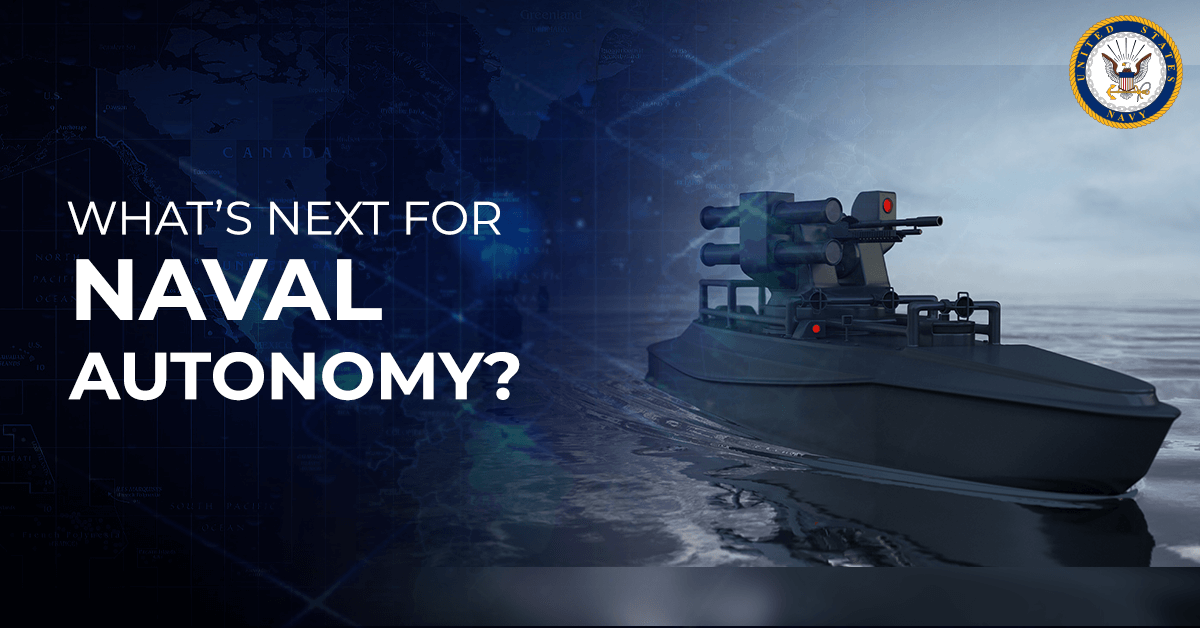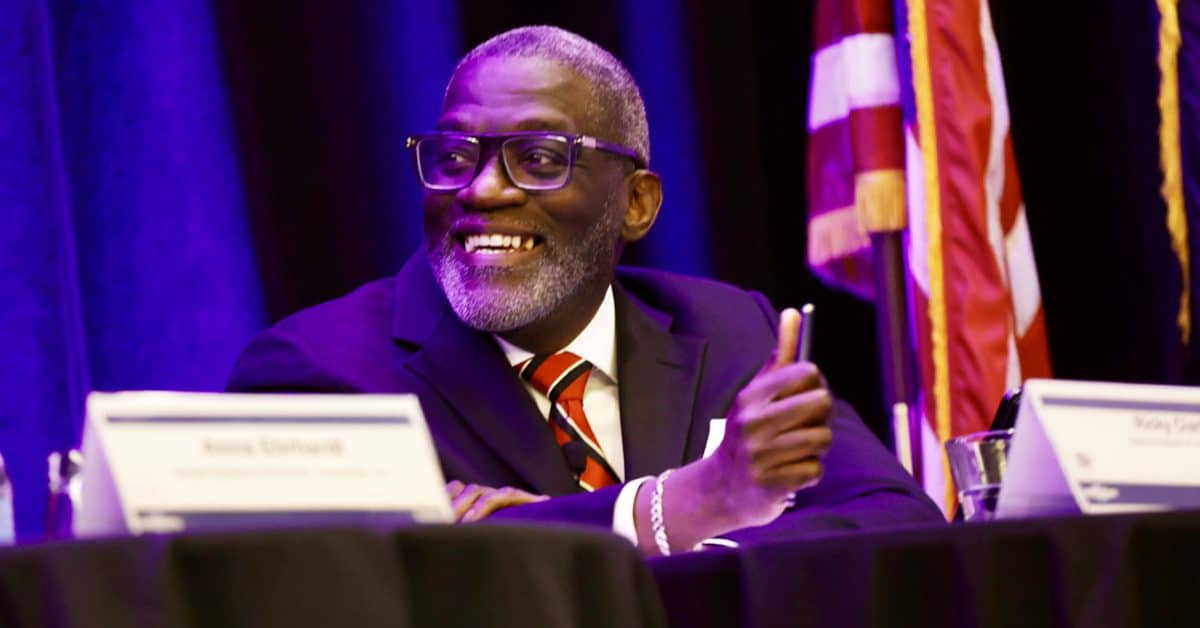
What’s Next for Naval Autonomy?
The U.S. Navy is working to develop and deliver autonomous undersea systems in efforts to maintain dominance in the domain. Naval experts will explore the Navy’s autonomy initiatives during a panel discussion titled “Naval Autonomy: Way Ahead” at the Potomac Officers Club’s 2024 Navy Summit on Aug. 15. The discussion will include topics such as:
- The current state of naval autonomy development, regarding policy/planning, resource allocation and technology progress
- Emerging technological opportunities and restraints
- International efforts which complement or compete with U.S. initiatives
Register for the 2024 Navy Summit to join the conversation.
The Naval Autonomy: Way Ahead Panelists
VADM (ret.) Frank Pandolfe
Vice Admiral (retired) Frank Pandolfe will moderate the panel discussion. Pandolfe has served as the vice president and strategic account executive for the Navy and Marine Corps at Leidos since January 2023. In this capacity, Pandolfe works to drive growth at Leidos while strengthening the company’s relationship with the Navy and Marine Corps.
Pandolfe is also currently a board member at the Army Distaff Foundation; he’s on the advisory council for the Middle East Institute strategic foresight initiative; and he’s a member of the Center for Naval Analyses’ military advisory board. Prior to his time at Leidos, Pandolfe was the president of international operations at Acuity International and Owl Cyber Defense in Abu Dhabi, United Arab Emirates.
Pandolfe has held multiple senior roles within the government as well. He was the assistant to the chairman of the Joint Chiefs of Staff and a military representative to secretary of state from 2015-2017, and he was the director of strategic plans and policy for the Joint Chiefs of Staff from 2013-2015.
His naval career includes positions such as commander of the U.S. sixth fleet and naval striking and support forces, as well as director of the surface warfare directorate within the Office of the Chief of Naval Operations.
Gregory Avicola
Gregory Avicola is a program manager at the Defense Advanced Research Projects Agency, or DARPA. In his role at DARPA, Avicola is leveraging his expertise in remote sensing, undersea systems and naval warfare to enable and improve undersea autonomous systems. He joined DARPA in 2019 as a program manager in the Tactical Technology Office.
Prior to his time at DARPA, Avicola worked at the Johns Hopkins University Applied Physics Laboratory for more than 12 years, holding positions like assistant program area manager, technical director attached to the DOD office, program manager and senior scientist. At Johns Hopkins, Avicola oversaw a portfolio of advanced technology anti-submarine warfare programs supporting DARPA and the Advanced Undersea Technology Office.
Commander Jeremiah Daley
Commander Jeremiah Daley is the military director for the U.S. Pacific Fleet N9WAR and the commanding officer of the Navy’s Unmanned Surface Vessel Division ONE.
At sea, Daley has held roles including communications officer aboard USS Stephen W. Groves; weapons and combat systems officer aboard USS Curtis Wilbur; commanding officer aboard USS Typhoon; and chief staff officer aboard Destroyer Squadron Five Zero and Commander Task Force 55.
Mario Miranda
Mario Miranda is the director of technology, security and cooperative programs at the Navy International Programs Office, or NIPO. In this role, Miranda leads a division that is responsible for overseeing international activities with allied international navies and managing a $14 billion portfolio. Miranda’s office manages the combat system development of 12 new construction ships for five allied navies.
Prior to his current role, Miranda served for more than three decades as a government civilian. He was the chief of staff for the Program Executive Office for Integrated Warfare Systems, where he was responsible for more than 150 programs. Miranda also led the development of Navy Integrated Fire Control as the deputy major program in the Future Combat Systems Program Office.
Dorothy Engelhardt
Dorothy Engelhardt is the director for Unmanned Systems DASN Ships for the U.S. Navy. Prior to her current role, Engelhardt was the deputy assistant secretary of the Navy for unmanned systems. She has more than three decades of experience in areas like program management, acquisition, requirements planning, systems engineering, test and evaluation, and logistics supporting the design, development and implementation of Naval and Marine Corps weapon and support systems.
Capt. Eric Hutter
Captain Eric Hutter is the executive officer of the Office of Naval Research.
U.S. Navy’s Autonomy Initiatives
Unmanned Surface Vessel Fleet
The Navy established a new unit in May that introduces small autonomous vessels into its fleet. The Unmanned Surface Vessel Squadron Three — located at Naval Amphibious Base Coronado — will oversee a fleet of small maritime drones including the Maritime Applied Physics Corp-built Global Autonomous Reconnaissance Craft.
Logistics Drones
According to Assistant Commandant of the Marine Corps Gen. Christopher Mahoney, the service branch needs new transportation equipment in order to modernize its logistics capabilities.
Mahoney said the service is looking into using autonomous low-profile vessels and medium and large autonomous drones for logistics missions.

Category: Articles




